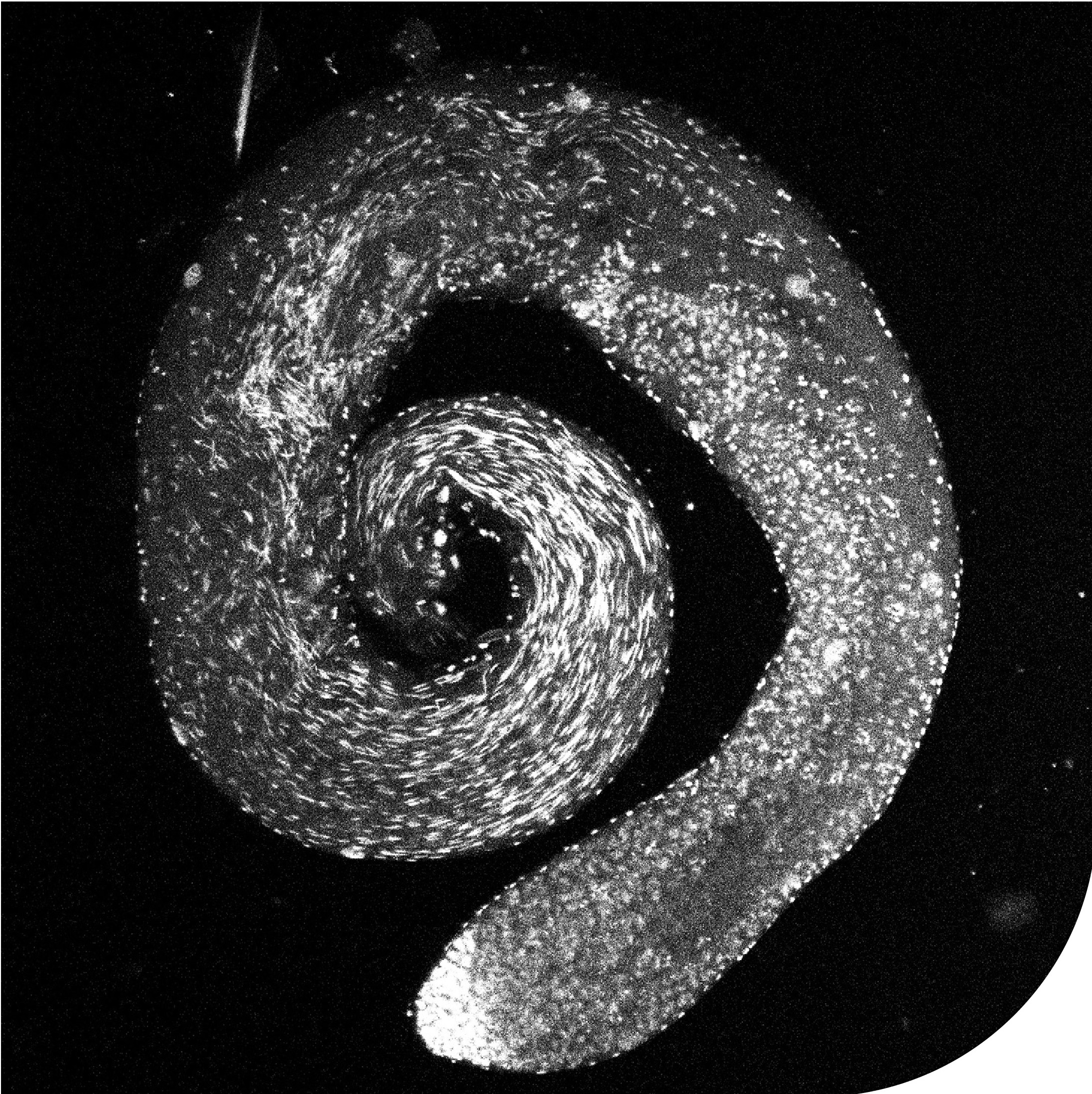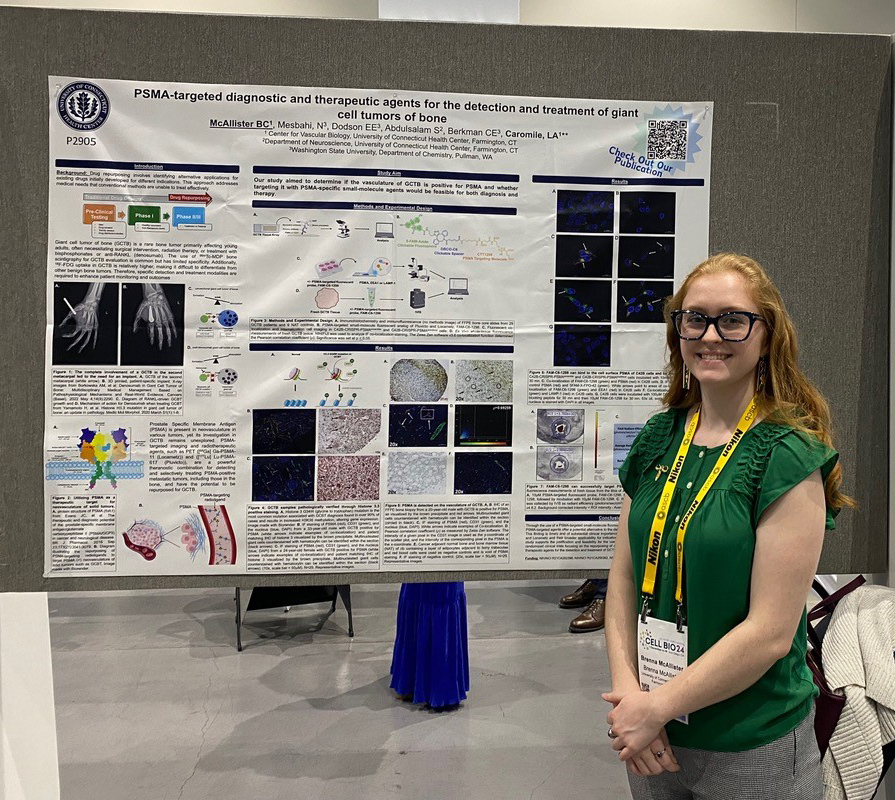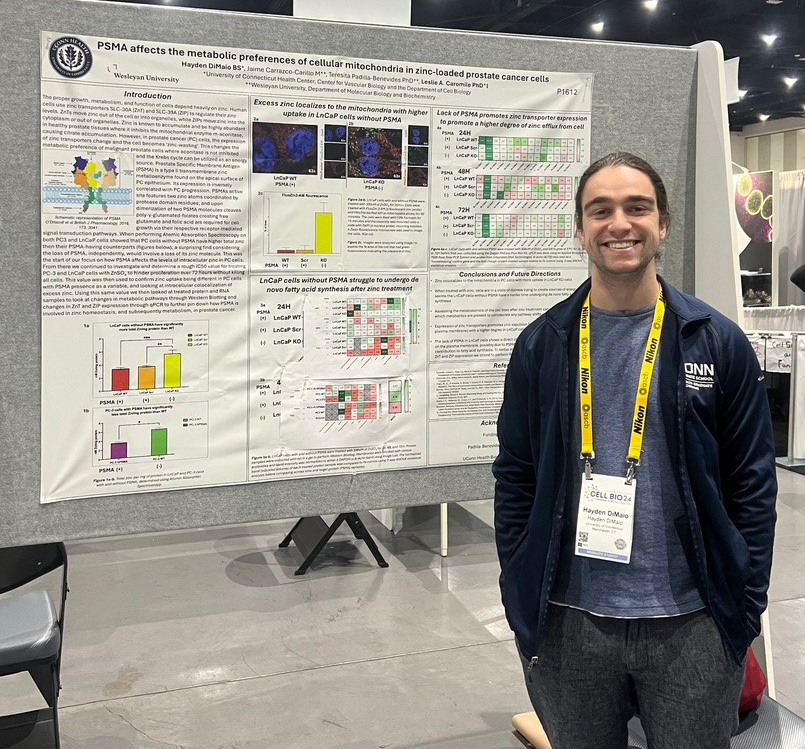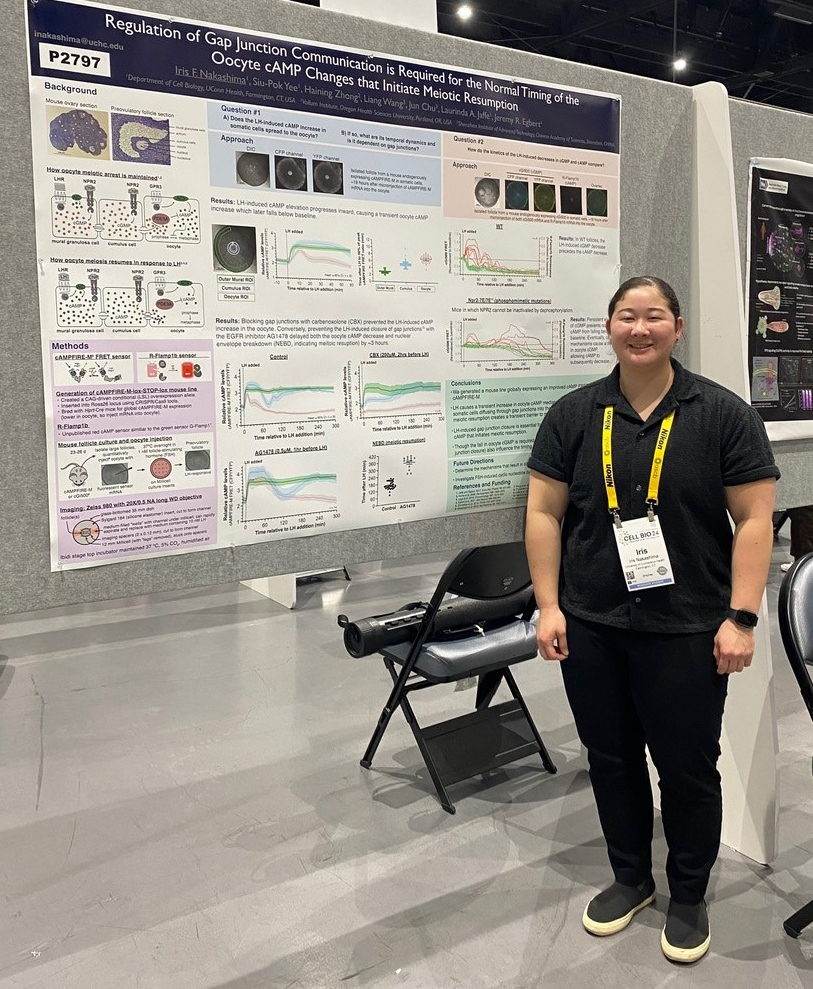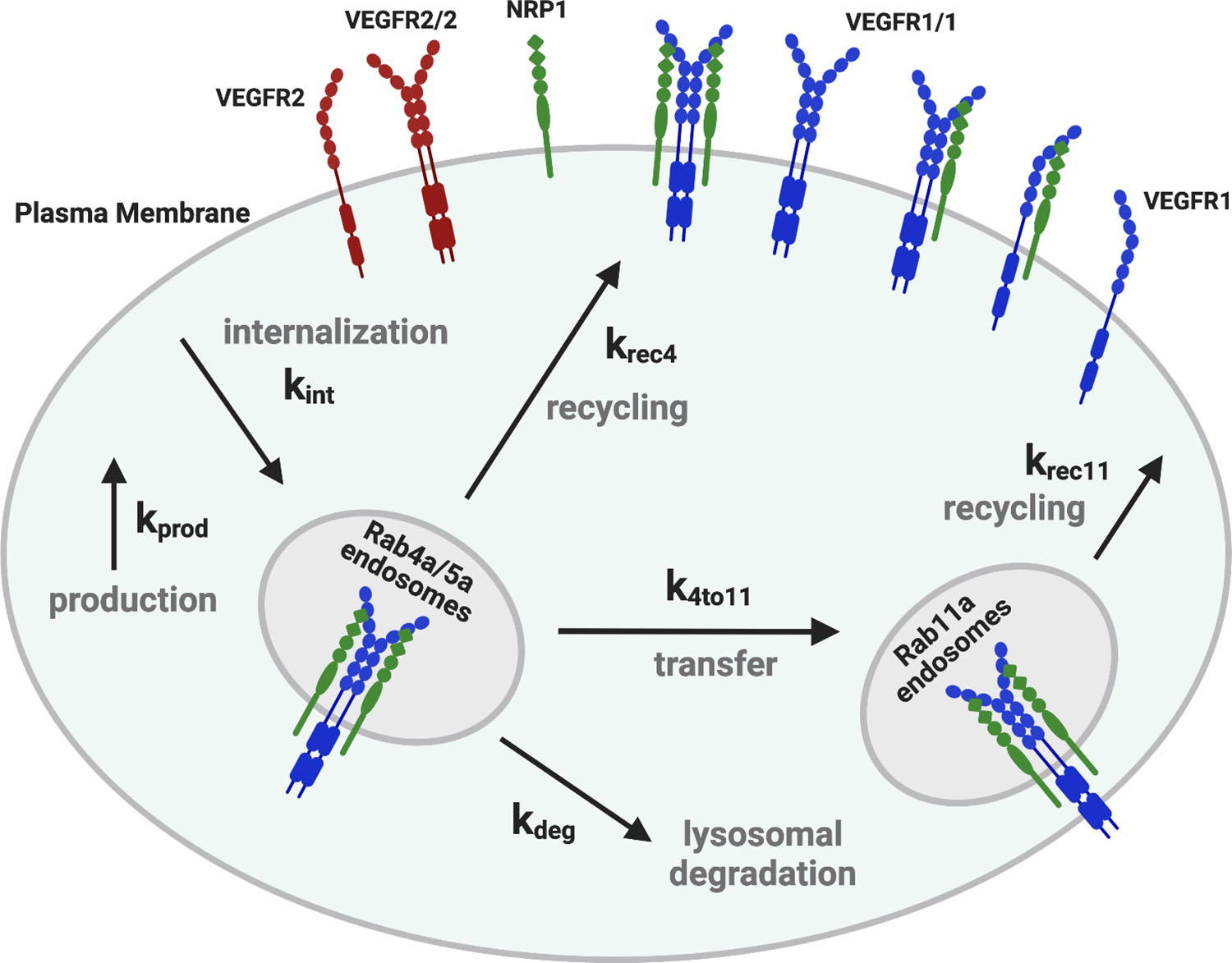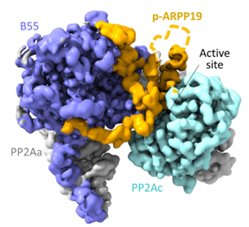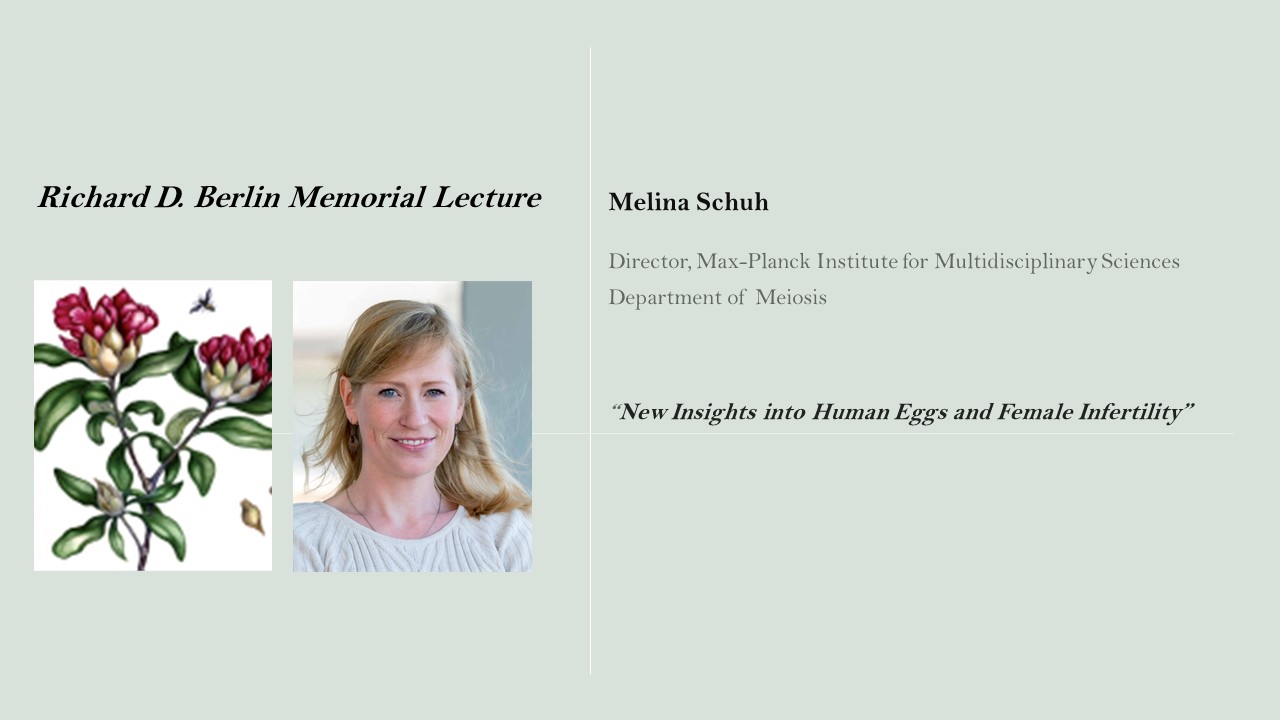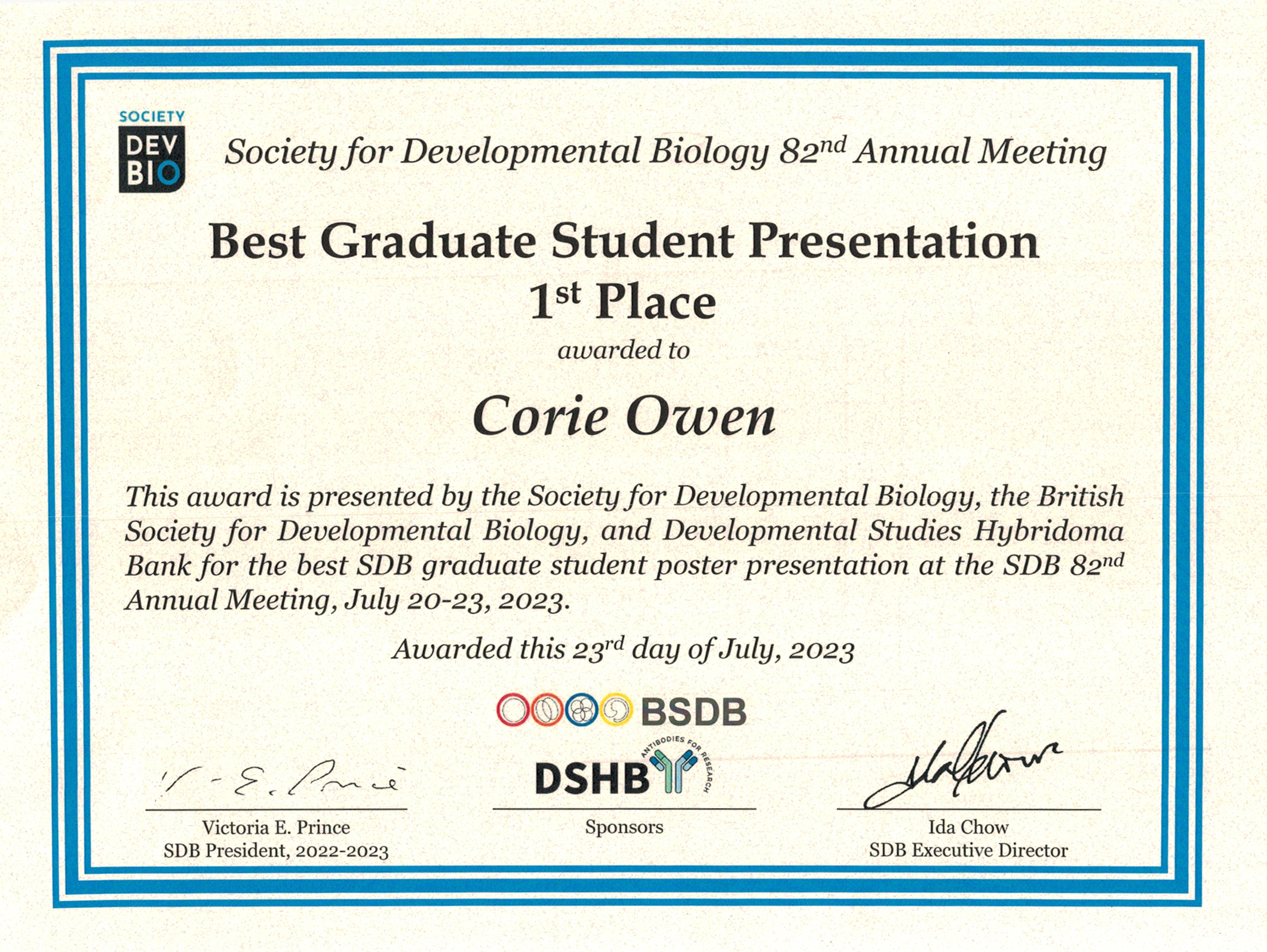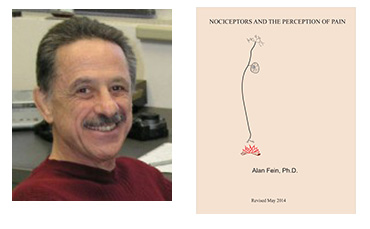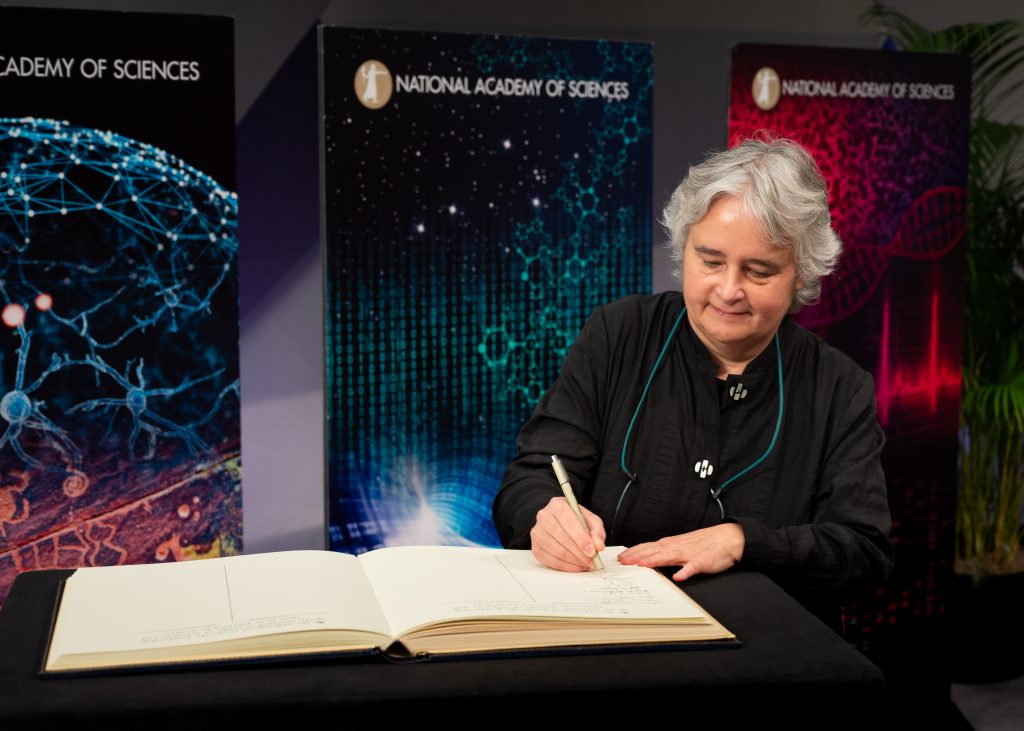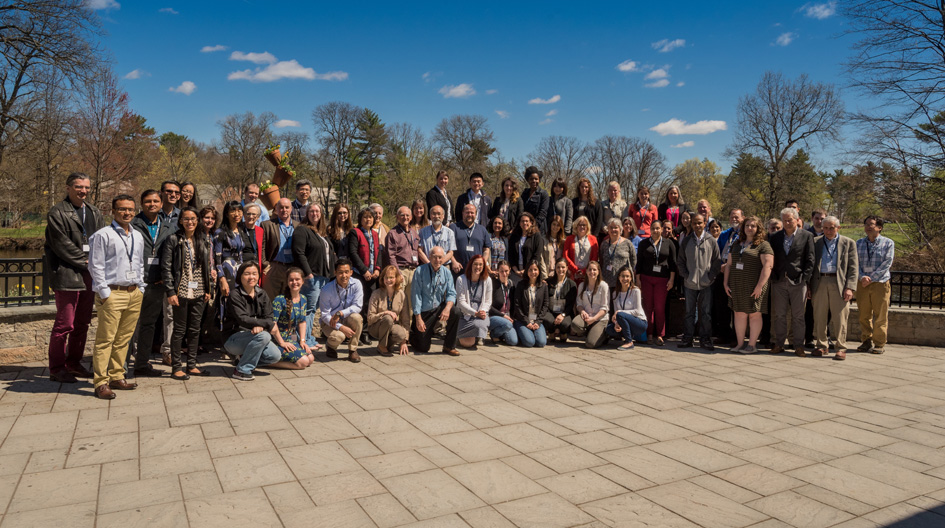October 2024, Inaba Lab Publication in Developmental Biology
Congratulations to Emma Beard and Mayu Inaba for their publication in Developmental Biology
Emma Kristine Beard, Rachael P Norris, Miki Furusho, Mark Terasaki, Mayu Inaba. Soma-to-germline BMP signal is essential for Drosophila spermiogenesis. Developmental Biology (2025) 517:140-147.
DECEMBER 31, 2024, IN MEMORY OF DR. ACHILLES (OGGIE) PAPPANO
We are sorry to share the sad news that Dr. Achilles “Oggie” Pappano, Professor Emeritus at UConn Health, passed away on December 31, 2024.
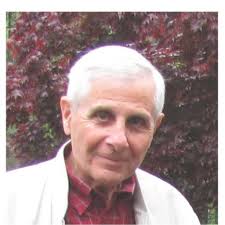 Dr. Pappano received his Ph.D. in Pharmacology from the University of Pennsylvania in 1966, and after a postdoctoral fellowship in the Department of Physiology at the University of Virginia School of Medicine, joined the University of Connecticut faculty in the Department of Pharmacology in 1968 when he joined the inaugural faculty at the newly established UConn School of Medicine, Dentistry, and Graduate Medical Education, where he built his own research lab and taught thousands of students for 44 years. He moved to the Department of Cell Biology in 2007 and retired in 2009 but continued on for several years teaching medical students as a re-employeed retiree.
Dr. Pappano received his Ph.D. in Pharmacology from the University of Pennsylvania in 1966, and after a postdoctoral fellowship in the Department of Physiology at the University of Virginia School of Medicine, joined the University of Connecticut faculty in the Department of Pharmacology in 1968 when he joined the inaugural faculty at the newly established UConn School of Medicine, Dentistry, and Graduate Medical Education, where he built his own research lab and taught thousands of students for 44 years. He moved to the Department of Cell Biology in 2007 and retired in 2009 but continued on for several years teaching medical students as a re-employeed retiree.
He is internationally recognized for his discoveries about autonomic regulation of pacemaker activity and excitation-contraction in the heart. He is also recognized for his exceptional contributions to medical student education.
During his tenure at UConn Health, he received the distinguished National Institutes of Health (NIH) Career Development Award for Young Scientists/MERIT. He served on the National Board of Medical Examiners and on study sections of the NIH. Dr. Pappano received the Charles Loeser Award for outstanding teaching in the basic science curriculum from the University of Connecticut Health Center and the Alumni Association Faculty Excellence Award in Teaching at the graduate level from the University of Connecticut.
Dr. Pappano is survived by his wife Mary Ann, their 4 children, 5 grandchildren, as well as his many friends at UConn Health. We will miss him.
His obituary can be found here.
Cell Biology students Brenna McAllister and Hayden DiMaio (both of the Caromile lab) and Iris Nakashima (Jaffe and Egbert lab) presented posters at the 2024 meeting of the American Society for Cell Biology.
October 1, 2024. Cell Biology & Vascular Biology Retreat
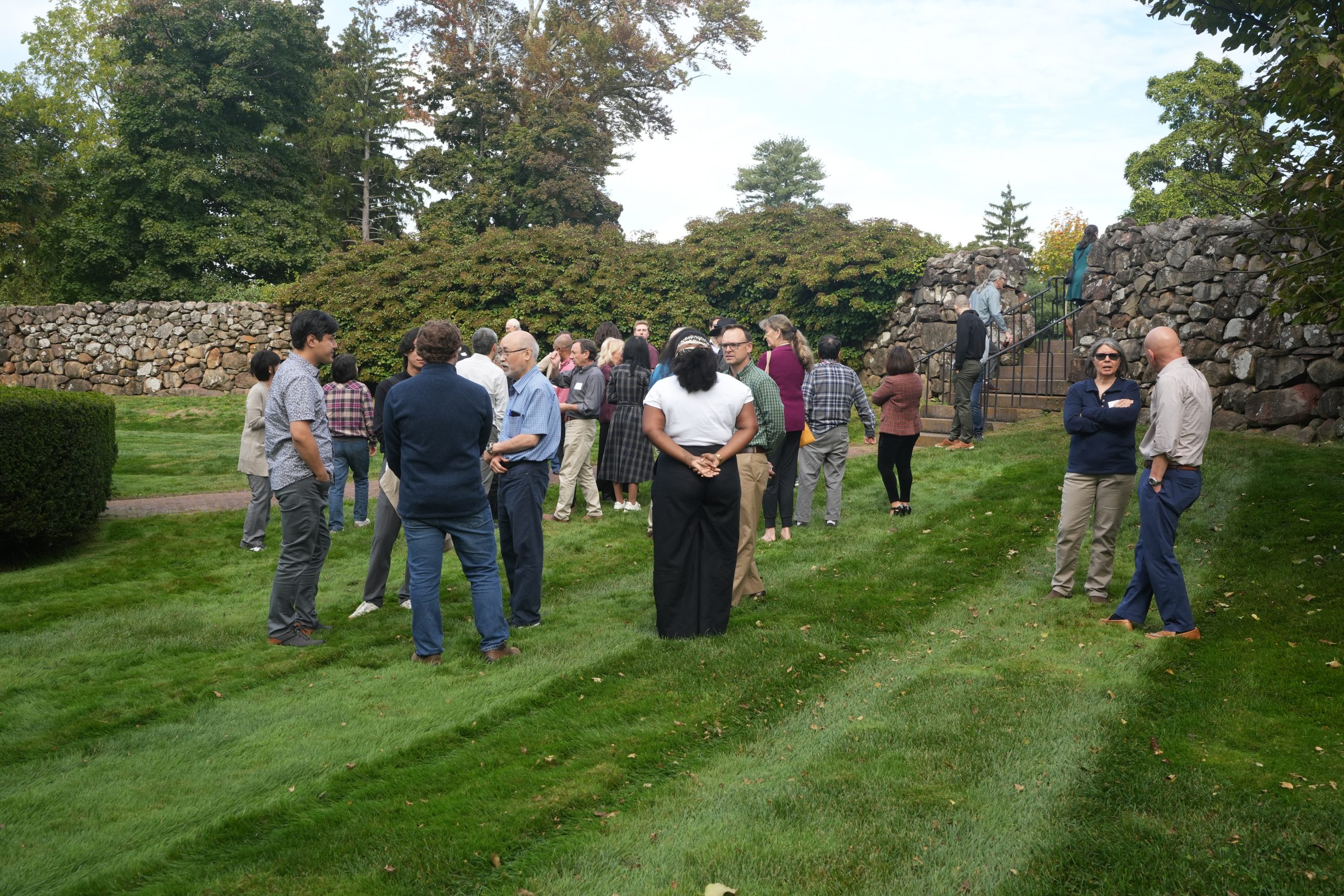
April 2024, New Faculty: Sarvenaz Sarabipour
Sarvenaz Sarabipour joined CCAM and the Cell Biology Department as an assistant professor. Her research in computational systems biology focuses on developing experimental and computational methods to study mechanisms of signal transduction in cells and tissues. She is also active in initiatives to improve research culture.
Trafficking dynamics in human endothelial cells.
March 2024, New Faculty: Abhijit Deb Roy
March 2024. Abhijit Deb Roy
Abhijit Del Roy joined CCAM and the Cell Biology Department as an assistant professor. His research concerns molecular signaling pathways and cytoskeletal dynamics involved in mechanobiology and cell migration. Directional cell migration plays critical roles during physiological processes such as development, angiogenesis and immune response, whereas dysregulation of cell migration is observed in pathologies such as cancer metastasis and atherosclerosis.
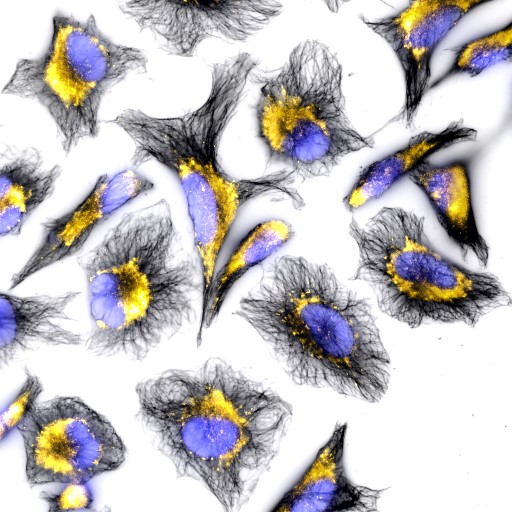
February 2024, Inaba lab publication in Nature Communications
Congratulations to Mayu Inaba and her lab for their publication in Nature Communications!
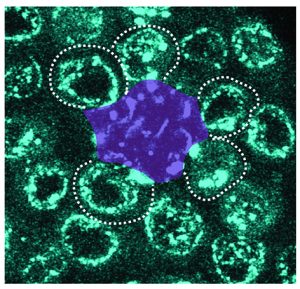
Ridwan, Twillie, Poursaeid, Beard, Bener, Antel, Cowan , Matsuda , and Inaba
Diffusible fraction of niche BMP ligand safeguards stem-cell differentiation
Nature Communications (2024) 15, 116
December 2023, Vos and Page Publication in Nature
Congratulations to cell biology department members Margaret Vos and Rebecca Page on their contributions to a publication in Nature!
Padi, Vos, Godik, Fuller, Kruse, Hein, Nilsson, Kelker, Page, and Peti.
Cryo-EM structures of PP2A:B55-FAM122A and PP2A:B55-ARPP19.
Nature (2024) 625:195.
July 2023, National Honor for Medical School’s Mark Terasaki
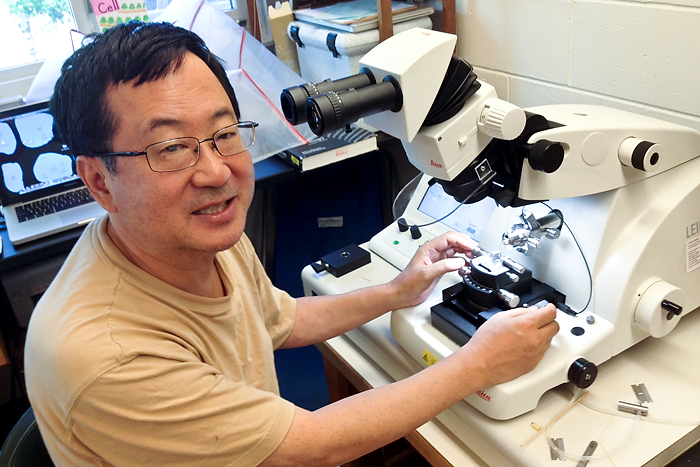
Congratulations to associate professor Mark Teraski, now a fellow of the American Society for Cell Biology! Dr. Terasaki is among a cohort of 19 new fellows elected by their peers. They will be formally recognized at the ASCB's joint meeting with the European Molecular Biology Organization, in December in Boston.
May, 2023. In Memorial of Dr. Alan Fein
We are sorry to share the sad news that Dr. Alan Fein, Professor Emeritus at UConn Health, passed away on May 1, 2023 after a long and courageous battle with cancer.
Dr. Fein joined the Health Center faculty in the Department of Physiology (now the Department of Cell Biology) in 1987 and retired in 2017. He is internationally recognized for his discoveries about the function of inositol trisphosphate in cellular signaling, and for his studies of the physiology of photoreceptors and blood cells.
He also contributed importantly to medical student education at UConn Health. He served for 20 years as a facilitator for Problem Based Learning, and designed and taught a medical school elective on Pain. He is the author or editor of several books, including an introductory textbook on the neuroscience of pain, which he decided to make freely available online.
- Nociceptors .pdf(English)
- Nociceptores – Tradução .pdf(Portugese translation)
Dr. Fein was born and raised in Brooklyn, New York and received a B.S. in electrical engineering from City College of New York, a master's from Columbia University and Ph.D.'s from Johns Hopkins Medical and Engineering schools. Prior to moving to UConn Health, he was a faculty member at Boston University and the Marine Biological Lab in Woods Hole Massachusetts. He is survived by his wife Marlene Leiner Fein, his 3 children and 5 grandchildren.
His obituary can be found here.
December, 2020. New Faculty: Rebecca Page
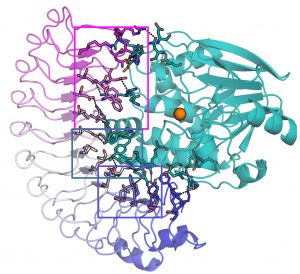
Rebecca Page joined the Cell Biology Department in December 2020, as a full professor. Her research concerns how we sense and react to our environment which is communicated in the cell by vast networks of highly dynamic, interacting proteins. These interactions are regulated in both space and time, and it is this tight regulation that allows signals from outside of the cell to be rapidly and precisely transmitted to the nucleus leading to the appropriate, and healthy, cellular response. We integrate structural biology, cell biology, genetics and biochemistry in order to understand how these signals in both prokaryotes and eukaryotes are communicated in the cell at atomic resolution.
September, 2020. New Faculty: Hideyuki Oguro
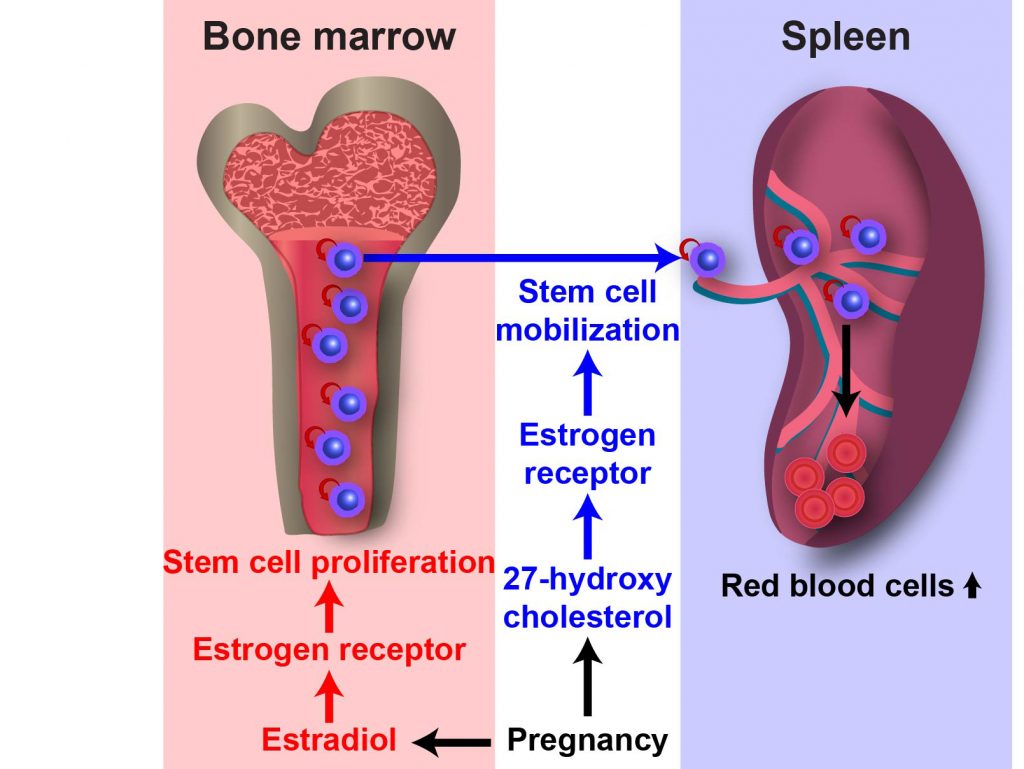 Hideyuki Oguro will join the Cell Biology Department in September 2020, as an assistant professor, with a joint appointment in the Department of Obstetrics and Gynecology. His research concerns mechanisms that regulate hematopoietic stem cells, and investigates how in conditions where more blood is needed, hormonal signals stimulate the proliferation and mobilization of these stem cells to make more blood cells. In a recent paper (J. Clinical Investigation, 2017, 127: 3392-2401), Oguro and colleagues demonstrated that two endogenous estrogen receptor ligands, estradiol and 27-hydroxycholesterol, differentially induce proliferation and mobilization of hematopoietic stem cells, respectively. This hormonal regulation is particularly important during pregnancy when maternal blood expands rapidly (figure adopted from Frontiers in Endocrinology, 2019, 10:204), and can lead to new strategies to promote hematopoietic regeneration and to enhance mobilization of stem cells into the bloodstream for transplantation. An additional focus of Oguro's research is to generate hematopoietic stem cells from human induced pluripotent stem cells by mimicking their developmental process.
Hideyuki Oguro will join the Cell Biology Department in September 2020, as an assistant professor, with a joint appointment in the Department of Obstetrics and Gynecology. His research concerns mechanisms that regulate hematopoietic stem cells, and investigates how in conditions where more blood is needed, hormonal signals stimulate the proliferation and mobilization of these stem cells to make more blood cells. In a recent paper (J. Clinical Investigation, 2017, 127: 3392-2401), Oguro and colleagues demonstrated that two endogenous estrogen receptor ligands, estradiol and 27-hydroxycholesterol, differentially induce proliferation and mobilization of hematopoietic stem cells, respectively. This hormonal regulation is particularly important during pregnancy when maternal blood expands rapidly (figure adopted from Frontiers in Endocrinology, 2019, 10:204), and can lead to new strategies to promote hematopoietic regeneration and to enhance mobilization of stem cells into the bloodstream for transplantation. An additional focus of Oguro's research is to generate hematopoietic stem cells from human induced pluripotent stem cells by mimicking their developmental process.
April, 2017. New Faculty: Mayu Inaba
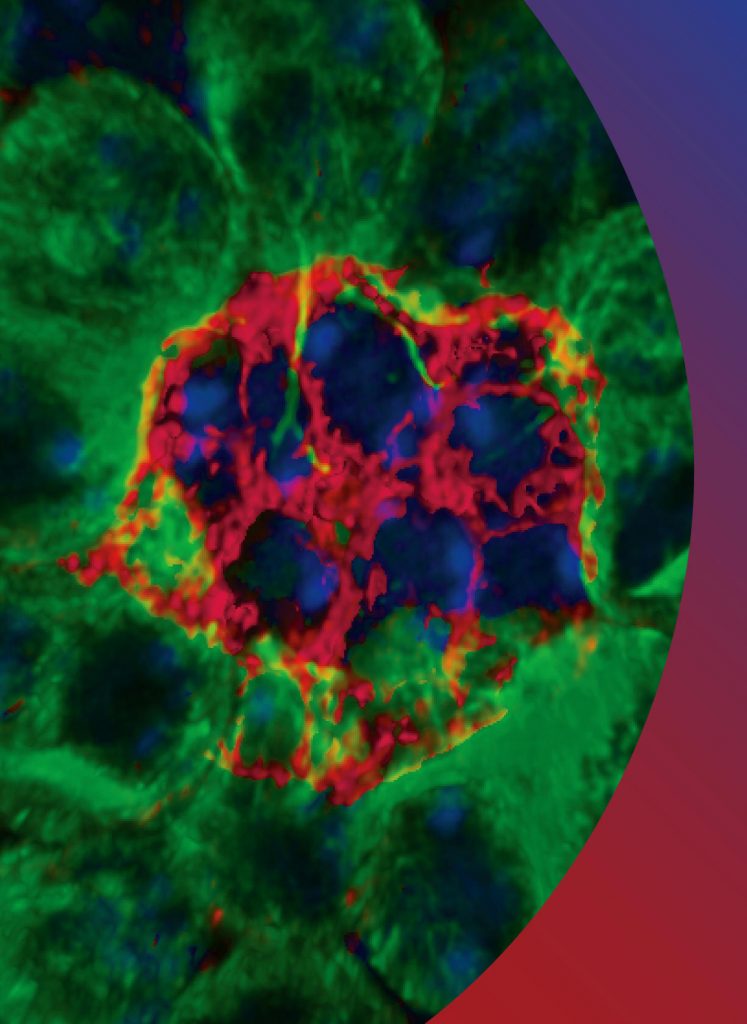
Mayu Inaba joined the Cell Biology Department in April 2017, as an assistant professor. Her research concerns signaling between adult stem cells and the specialized microenvironments, called niches, that maintain stem cells in an undifferentiated and self-renewing state. In a recent paper (Nature, 2015; 523: 329-332), Inaba and colleagues demonstrated that microtubule-based nanotubes, which extend from stem cells into the cells of the niche, contribute to the short-range nature of this signaling.
